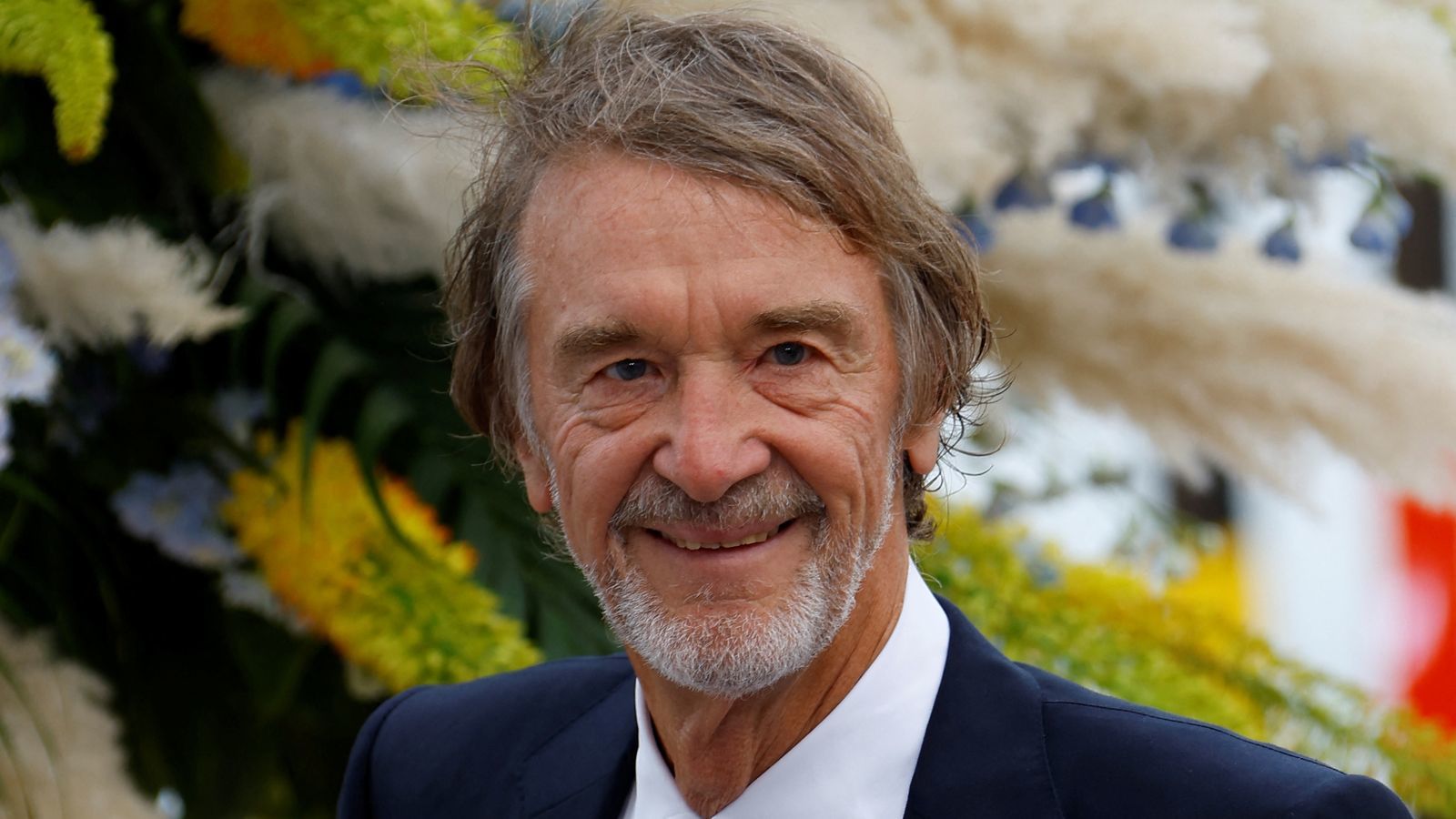
Sir Jim Ratcliffe warns of North Sea energy 'death' due to UK windfall tax
The owner of the largest pipeline system in the North Sea has warned the future of domestic production is in doubt due to the severity of UK windfall taxes.
Sir Jim Ratcliffe, who is Britain's richest man and whose Ineos business owns the Forties oil and gas pipeline, said the tax rate applied to North Sea output means industry investment is now only meaningfully flowing in the direction of the United States.
The government introduced the energy profits levy (EPL) last year in a bid to tap the benefits of record prices companies were enjoying after Russia began its war in Ukraine.
The idea was to claw back some of the taxpayer money spent on energy support schemes for households and businesses while maintaining incentives to invest to bolster UK energy security.
But Sir Jim, along with counterparts at other firms which have cut jobs in response, argued that the tax rate is too punitive.
He said: "The UK has hiked the tax take in the North Sea from 40% to 75% and we are now seeing many operators pausing or cancelling their investment plans.
"The big winners are in the US where operators in the Gulf of Mexico can pay just 37% tax and investment is at its highest level for a decade."
 Ineos chairman Sir Jim Ratcliffe
Ineos chairman Sir Jim Ratcliffe
Sir Jim added: "The UK government's so-called 'windfall tax' is really primitive politics.
"There has been no thought given to the long-term consequences of this 'tax it to death' move.
"Taxes are now so high that profits no longer fund future investments and on top of this, new investments have poor returns with invariably high tax rates."
Brian Gilvary, Ineos executive chairman, also told Sky News that while the windfall tax "made sense" at the time it was introduced, that was no longer the case because the rate had increased at the same time as oil prices had fallen 60%.
The Forties pipeline system, which carries the equivalent of 575,000 barrels per day from 85 fields to its processing facility at Grangemouth, is currently seeing investment of up to £1bn, Ineos said.
It explained that the network was being upgraded to "ensure it remained fit for purpose until the 2040s".
But the group said that the money was dependent on the North Sea basin remaining a viable oil and gas hub.
Sir Jim, who is one of the frontrunners to potentially buy Manchester United, is not known for speaking out publicly on his business interests.
His intervention adds more fuel to the fiery debate on the windfall tax which Labour, and other opposition parties, have said they would increase further at a time when families are finding it increasingly difficult to make ends meet.
Shell and BP both reported record group profits for 2022 - figures that critics, including climate campaigners, described as excessive and morally wrong.
Both firms maintained the pace of shareholder rewards in the first quarter of 2023.
In response to Sir Jim's comments, a government spokesperson said: "The Energy Profits Levy helps fund £26bn in cost of living support from excess profits while encouraging investment in order to bolster the UK's energy security.
"We have been clear that we want to encourage reinvestment of the sector's profits to support the economy, jobs, and our energy security, which is why the more investment a firm makes into the UK, the less tax they will pay."











